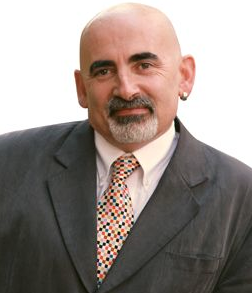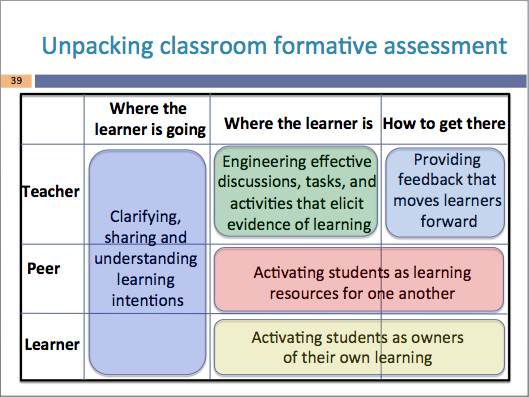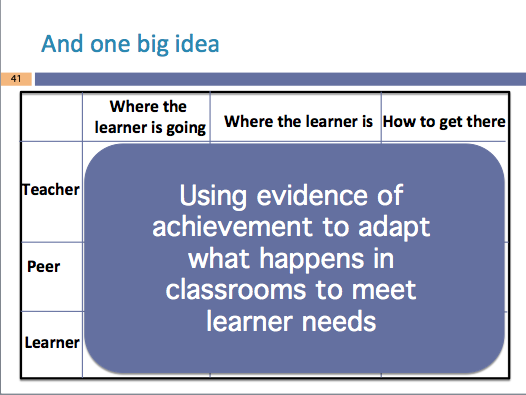Just to remind all teaching staff at PBAS about our student free day in week 2 (Wed 5th February) I thought I would post some information about the international speaker we are going to be listening to – Dylan Wiliam. I am aware that Dylan Wiliam is known to most of you but I thought providing some information about him prior to listening to him speak on the 5th of February would be useful.
Dylan Wiliam
Dylan Wiliam’s work focuses on the power of formative assessment in improving student learning. I recently came across a post which explained his current book Embedded Formative Assessment. The book outlines 5 key formative assessment strategies to improve student learning and also provides over 50 practical techniques for classroom formative assessment. My understanding is that as part of the cost for the day this book will be provided to each person who attends. Below is an outline of the 5 key strategies thanks to the post I mentioned earlier by Kelly Goodrich. Her full article can be read here.
Embedded Formative Assessment
1. Clarifying, sharing, and understanding learning intentions and criteria for success – getting the students to really understand what their classroom experience will be and how their success will be measured.
2. Engineering effective classroom discussions, activities, and learning tasks that elicit evidence of learning – developing effective classroom instructional strategies that allow for the measurement of success.
3. Providing feedback that moves learning forward – working with students to provide them the information they need to better understand problems and solutions.
4. Activating learners as instructional resources for one another – getting students involved with each other in discussions and working groups can help improve student learning.
5. Activating learners as owners of their own learning – We wrote a recent blog on this topic: self-regulation of learning leads to student performance improvement.
The following two slides are from a presentation Dylan Wiliam gave in Austin, Texas in 2013. The two slides are an overview of the five key strategies for formative assessment. If you would like to view the whole presentation that these slides came from as well as other presentations given by Dylan Wiliam click here.
Finally here is a short video of Dylan Wiliam discussing his book Embedded Formative Assessment.




